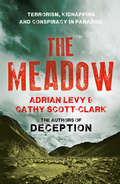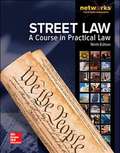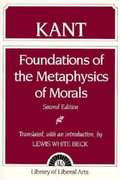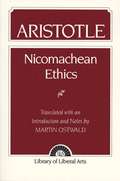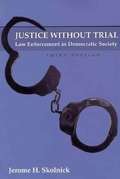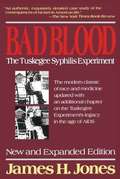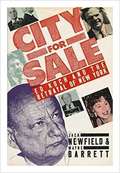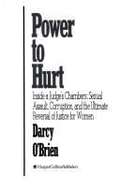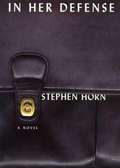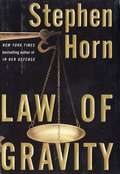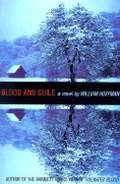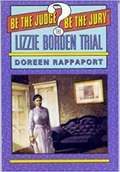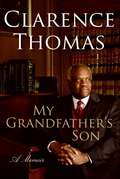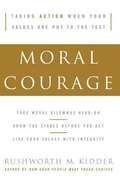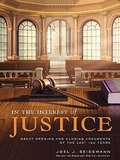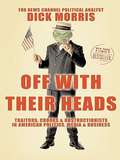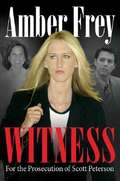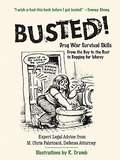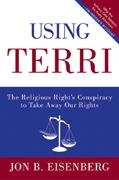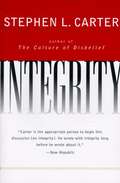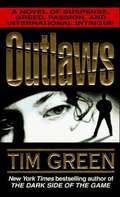- Table View
- List View
The Meadow: Kashmir 1995 - Where The Terror Began
by Cathy Scott-Clark Adrian LevyThe shocking true story of a brutal kidnapping high in the mountains of Kashmir that marked the beginning of modern terrorism. In July 1995, ten backpackers journeyed into the foothills of the Himalayas, trekking to an idyllic campsite known as the Meadow. But their search for tranquillity was savagely interrupted when they were taken hostage by Islamic extremists. Using diaries, letters, classified police reports and interviews with the jihadis themselves, The Meadow traces the escalating tension between kidnappers, victims and police, while examining the high-level conspiracies surrounding the abduction. It tells of the single escape attempt and how – with a brutal beheading – the hostage takers took an irreversible step into the abyss. The shocking true story of the crisis that foreshadowed a new epoch of global terrorism, this is the book that forced Intelligence and government authorities to uncover what really happened in the Meadow.
Street Law: A Course in Practical Law
by Inc. Lee P. Arbetman Edward L. O'Brien Street LawStreet Law: A Course in Practical Law #65533;2016 provides young people with practical legal knowledge that is relevant to their everyday lives. This knowledge is delivered using Street Law's signature student-centered, interactive, democratic pedagogy, which ensures that students develop and hone the high-level critical thinking, problem solving, engagement, and communication skills that are consistent with emerging state standards. Includes Print Student Edition
Street Law: A Course In Practical Law
by McGraw-Hill Education EditorsStreet Law: A Course in Practical Law ©2016 provides young people with practical legal knowledge that is relevant to their everyday lives. This knowledge is delivered using Street Law's signature student-centered, interactive, democratic pedagogy, which ensures that students develop and hone the high-level critical thinking, problem solving, engagement, and communication skills that are consistent with emerging state standards.
Foundations of the Metaphysics of Morals
by Immanuel Kant Lewis White BeckImmanuel Kant is known for his philosphy of ethics in relation to taking actions according to a categorical imperative and with the intent of dutifulness, rather than acting on ones desires or expectations of outcomes. This book is considered to be a summary of Kant's philosophy of ethics, written for a wider audience than most of his other works. Still, it is Kant and it is philosophy, so it is pretty deep reading. This book also includes a short essay titled, What is Enlightenment. This book is translated from German, but still retains a few German words, along with the Latin words common in books of philosophy. In addition to the regular page numbers, this book also has page numbers from a standard edition of Kant's works. In the printed version, these numbers were in the margin. In this copy they are in the text next to the word they were nearest in the printed text. This means they are often in the middle of a sentance.
The Nicomachean Ethics
by AristotleEnduringly profound treatise, whose lasting effect on Western philosophy continues to resonate. Aristotle identifies the goal of life as happiness and discusses its attainment through the contemplation of philosophic truth. Translated, with notes and introduction by Martin Ostwald.
One Hundred Million Acres
by Karen Ducheneaux Kirke KickingbirdIndians from Alaska to Texas, from New York to California, are now claiming lands that are rightfully and legally theirs. Denying its own legal system, the federal government disputes Indian ownership of approximately one hundred million acres, which include presently held tribal lands and individually owned Indian lands; the Alaskan Settlement; administrative, submarginal, restoration, and surplus federal lands; and those lands belonging to terminated and nonfederal tribes.
Bad Blood: The Tuskegee Syphilis Experiment New and Expanded Edition
by James Jones1932 - 1972 - Alabama. Describes a study in which poor African Americans were denied appropriate medical treatment.
Chuang Tzŭ: Taoist Philosopher and Chinese Mystic
by Herbert A. Giles Zhuang ZiChuang Tzŭ belongs to a period three or four centuries before Christ. A disciple of Lao Tzŭ, his writings, which as a consequence are mostly allegorical, are an attempt to refute the materialistic Confucian teaching that arose after Lao Tzŭ's death. Although Chuang Tzŭ failed in his aims, he left a work of marvellous literary beauty and great originality. This classic translation makes Chuang Tzŭ available to English readers with the aid of a running commentary incorporated in the body of the text.
City For Sale: Ed Koch And The Betrayal Of New York
by Jack Newfield Wayne BarrettOffers a behind-the-scenes look at the Koch administration and the New York City political machine, profiling the personalities involved in the many scandalous events
Power to Hurt
by Darcy O'Brien"His was a sensibility in which sex, hate, and the lust for power were so intertwined as to be indistinguishable." Are you in the mood for reading about a real-life villain whose abuse of power was compared to that of Henry VIII? Look no further than this small community in West Tennessee, where a detestable judge used his influence over jobs and child custody cases to intimidate several women into a state of sexual victimization and emotional paralysis. Darcy O'Brien's writing is eloquently descriptive, with a good feeling for character--such as the heroic, yet humble, figure of an FBI agent who cares enough about the community to involve himself in local problems and bring the judge to trial. Power to Hurt is nominated for a 1997 Edgar Award.
In Her Defense: A Novel
by Stephen HornA lawyer with an appetite for risk. A gorgeous socialite accused of murder. Its the case of a lifetime--if only she were innocent. Following in the blockbuster tradition of Scott Turow and Richard North Patterson comes Stephen Horn and In Her Defense, and intense, riveting debut thriller with a twist. Frank O'Connell's need to live on the edge cost him his family, his home, and a partnership in his father-in-laws prestigious Washington firm. Now he combs the cell blocks for clients and wonders if he's sunk too low ever to come back. His ex-wife wants to see less of him, his therapist wants to see more, and his last link to professional survival just gave him an ultimatum. Then into his office walks Ashley Bronson. The murder of a former cabinet official has just propelled her from the society column to the front page, and, inexplicably, she wants Frank to defend her. She hands him her case, followed by her confession and some damning physical evidence. Frank thinks his biggest challenge is her guilt. He's got a lot to learn. Ashley's admission proves just another detail in a defense in which ethics are bent and morals compromised. As the trial date looms closer, the goverment's case seems insurmountable. A desperate Frank hits upon an inspired strategy--and unwittingly becomes a threat to people in high places when he unravels a tangled web of events that began a generation ago. Their personal lives in tatters and confronted by forces they don't understand, besieged lawyer and client have only each other as the courtroom battle begins. In this fast-paced legal thriller, former federal prosecutor Stephen Horn brings his knowledge of law and government to stunning life with this absorbing tale of love, betrayal, and murder that is sure to be one of the most entertaining and engrossing stories of the year.
Law of Gravity
by Stephen HornPhilip Barkley had come far enough in Washington to know where those proverbial bodies were buried, but not so far that he'd lie about it. In the capital, that was no-man's-land, and his fall from grace was swift. When personal tragedy accelerates his downward spiral, all that remains is his integrity, and it's the price of a fresh start. The disappearance of Senate Intelligence Committee aide Martin Green indicates a breach of national security. Senator Warren Young, the party's best chance to keep the White House, needs a credible report that the missing man was no spy. Barkley is required to oversee the investigation and deliver the "right" result. As the case progresses, the signs grow more troubling, and even an FBI agent isn't what she seems. The pursuit of Green leads across generations, a trail of deception and murder that began with a woman's fall from a Bronx rooftop almost fifty years earlier. Barkley's odyssey finally brings him to the door of a retired detective haunted by a case he never solved. Together, the two men seek justice -- and their own renewal.
Blood and Guile
by William Hoffman[From the front flap:] "From the award-winning author of Tidewater Blood comes a story of lifelong friendships, valor, and betrayal that unfolds with deadly calm. It begins on a hunting trip in the mountains of West Virginia. Walter, Drake, and Cliff have known one another for a lifetime. Blood brothers who have gone their separate ways over the years, they have gathered together again for a weekend of conviviality and the chance to shoot ruffed grouse. During the first morning in the woods, they are confronted with a tragedy. The fourth member of the hunting group--an invited newcomer--is shot and killed by Cliff. This seemingly accidental death is a problem for the local sheriff, and Cliff is called back to the mountains. His story doesn't fit the facts. Determined to help him, and standing in as Cliff's lawyer, Walter finds himself drawn into the investigation, even as he struggles to comprehend the changes in his friends. As the authorities build their case, Walter can no longer deny that all is not what it seems, and his trust in his friends slowly erodes. They have secrets they will not share--secrets that will ultimately tear their friendships apart and set them on a course to disaster. Evocative and suspenseful, Blood and Guile builds with a subtle force to expose the deepest desires buried in the hearts of men."
The Lizzie Borden Trial (Be the Judge? Be the Jury)
by Doreen RappaportReaders step into the jury box and judge the testimony of family, friends, the Borden housekeeper, and medical experts to decide for themselves if Lizzie Borden murdered her father and stepmother.
My Grandfather's Son
by Clarence ThomasAutobiography of the Supreme Court justice, from his early years of poverty and hunger through his years at Yale Law School to his highly contested appointment to the Supreme Court
Moral Courage
by Rushworth M. KidderIn a book rich with examples, Rushworth Kidder reveals that moral courage is the bridge between talking ethics and doing ethics. He explains that the courage to act is found at the intersection of three elements: action based on core values, awareness of the risks, and a willingness to endure necessary hardship. He demonstrates the benefits of ethical action to the individual and to society -- and the severe consequences that can result from remaining morally dormant.
In the Interest of Justice
by Joel J. SeidemannDrawing from some of the most well-known courtroom cases of our time, this rich and rewarding volume collects more than two dozen of the most memorable opening and closing arguments made by top prosecutors and defense attorneys in the last 100 years.
Off With Their Heads: Traitors, Crooks & Obstructionists In American Politics, Media & Business
by Dick MorrisConservative political analyst exposes the many ways he feels Americans have been lied to from the Clinton administration to the present day.
Witness for the Prosecution of Scott Peterson
by Amber FreyWitness is the chilling story of how a young woman became ensnared in Scott Peterson's web of lies, then risked everything to seek justice for Laci Peterson and her unborn child, Conner. It is also a story of forgiveness and faith, and of one woman's struggle to live with an open and honest heart.
Busted!: From the Buy to the Bust to Begging for Mercy
by M. Chris FabricantFabricant provides amusing tips on how not to get busted and what to do if you are. He describes different types of outrageous busts including those of celebrities. Also gives information on the criminal justice system as it applies to drug crime. The author humorously describes finding a dealer, buying, handling cops, surviving jail, and more.
Using Terri: The Religious Right's Conspiracy to Take Away Our Rights
by Jon B. EisenbergThe Terri Schiavo case centerred around the removal of a feeding tube from a dying woman. Eisenberg, who served as one of the lead attorneys on Michael Schiavo's side, asserts that the Terri Schiavo case was a key battle in a larger political struggle over abortion, stem-cell research, physician-assisted suicide, gay rights, and the appointment of federal judges. The religious Right chose to make it a national spectacle because they thought they could win. They were wrong. But there are many more battles to come. Jon Eisenberg, who served as one of the lead attorneys on Michael Schiavo's side, exposes the religious Right's strategies and follows the money trail to reveal how they are organized, who is funding the movement, and where we can expect future legal maneuvers to combat the American traditions of autonomy and freedom. Jon Eisenberg has experienced the family struggle of removing a feeding tube from a loved one and witnessed firsthand the Florida drama that will continue to have national legal and political consequences for years to come. What tactics can we expect to see in courtrooms and state legislatures all across this country in the days ahead? Who is behind the funding and what do they hope to accomplish and when? What are the religious and bioethical issues that are at the center of these debates and how will they affect future legal battles? Using Terri gives us a behind-the-scenes look at what happened -- and what's coming. Author Info. Jon B. Eisenberg teaches appellate procedure at the University of California's Hastings College of the Law in San Francisco.
Integrity
by Stephen L. CarterIn this book, Stephen Carter examines why the virtue of integrity holds such sway over the American political imagination. By weaving together insights from philosophy, theology, history and law, along with examples drawn from current events and a dose of personal experience, Carter offers a vision of integrity that has implications for everything from marriage and politics to professional football. He discusses the difficulties involved in trying to legislate integrity as well as the possibilities for teaching it.
Outlaws
by Tim GreenCody Grey, the Texas Outlaws' assassin on the football field, is facing up to the harsh reality that both his marriage and his pro career are grinding to a painful close. Then comes the broadside tackle that could bench him permanently - and arrest for the murder of the slimy IRS agent who was out to nail him. Only one woman can save him. A brilliant lawyer, Madison McCall reluctantly takes Cody on as a client. Madison risks everything to save a life, solve a murderous puzzle, and keep herself from getting killed along the way.
